Controversies around “fake news” sites aren’t just nightly news fodder or political footballs. As it turns out, they’re new additions to the list of parental fears, sitting alongside computer viruses, social media, and online sexual predators.
Parents today aren’t just worried about their kids watching internet porn. Many are concerned their child will read a Breitbart article or watch a video on CNN.
Panda Security’s exclusive analysis of U.S. parents reveals what they fear the most when it comes to websites, online activities, and apps.
- More than twice as many parents consider right-wing website Breitbart unsafe for children than CNN.
- 20 percent of parents think CNN is not safe for their kids.
- 47.9 percent of parents think Breitbart is unsafe for children.
- 75.9 percent of parents think anonymous sharing is a danger to kids.
- More parents block Facebook (5.9 percent), YouTube (5.8 percent), Netflix (4.3 percent), than they do Pornhub (2.5 percent).
- 54.2 percent of parents are most concerned about sexual predators online.
- 37.1 percent of parents concerned about sexual predators haven’t spoken to their kids about it.
We surveyed 1,000 U.S. parents to determine the websites, apps, and activities that most concern them when it comes to their children.
Parents Are Worried About Some Of The Web’s Most Popular Sites
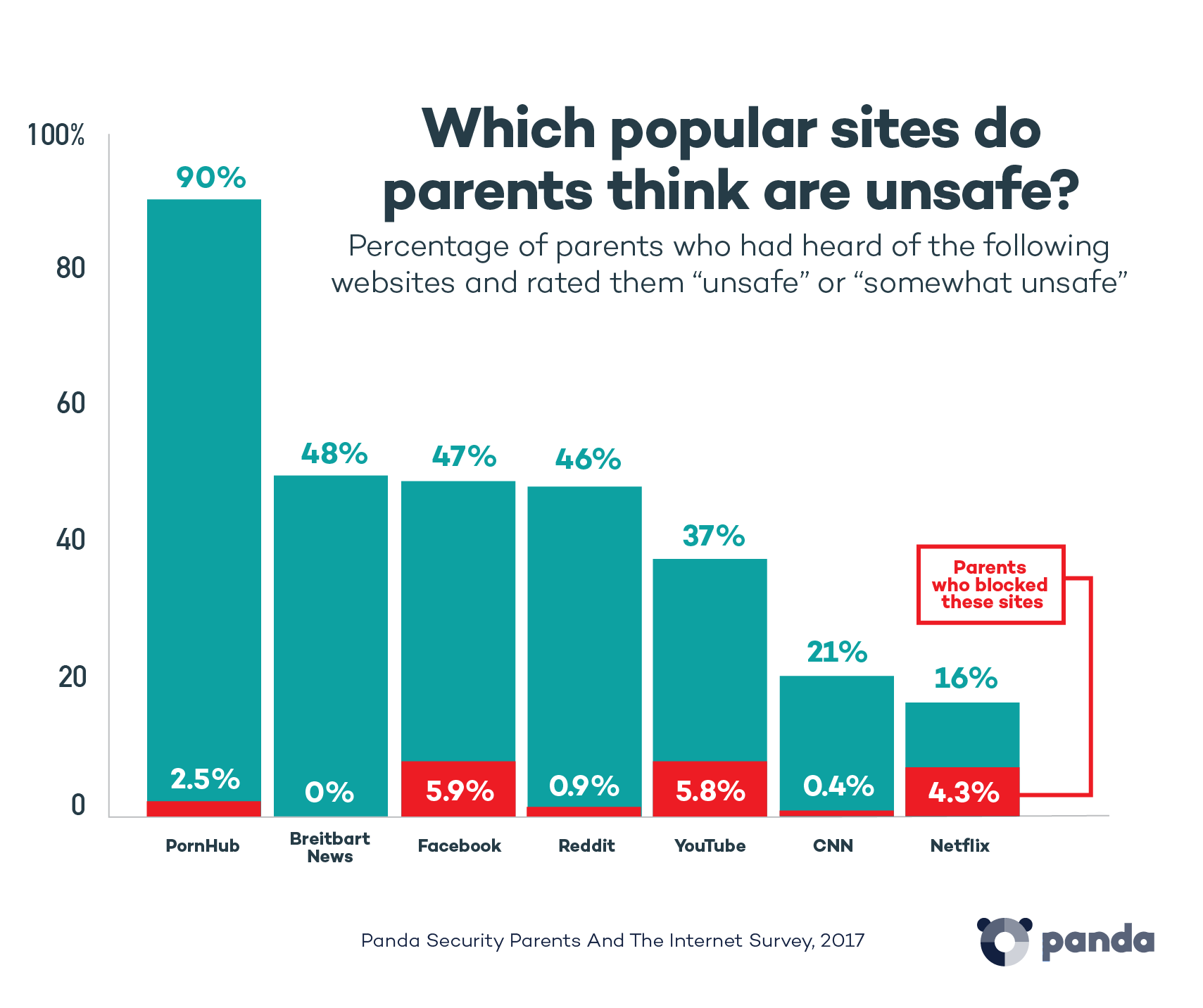
Of our total sample of respondents, 90.1 percent ranked Pornhub as “Very Unsafe” or “Somewhat Unsafe”. Our analysis also shows some major social media sites as a source of concern for many parents. 47.0 percent of parents view Facebook as unsafe, while Reddit received the same rating from 46.1 percent of respondents.
Video streaming websites like YouTube and Netflix also ranked as concerning to parents. 36.7 percent of parents said YouTube was a safety concern while 15.5 percent also felt the same about Netflix.
Parents also considered news sites like CNN and Breitbart as a threat to their children. 20.5 percent felt concerned about CNN while 47.9 percent reported Breitbart News as somewhat or very unsafe.
For parents who felt “Very Safe” or “Somewhat Safe” towards specific websites, Amazon ranked first with 71.4 percent. More parents said they felt Netflix (69.9 percent) was safer than Wikipedia (65.5 percent).
More Parents Blocked YouTube than Pornhub
Our analysis showed there was a disconnect between parental concern and parental action. We found more parents reported blocking video websites like YouTube (5.8 percent) and Netflix (4.3 percent) than they did porn sites like Pornhub (2.5 percent).
One reason why parents may be blocking sites like YouTube and Netflix more than Pornhub is that parents may consider excessive screen time more concerning and more likely than specific content like pornography. Parents may feel the chances of their children finding/watching adult content too remote for concern, especially if the children are very young.
However, a University of New Hampshire survey of 1,500 internet-using youth between the ages 10 and 17 showed 42 percent of them had been exposed to online pornography in the past year. Of those, 66 percent reported unwanted exposure.
Parents Overwhelmingly Think Anonymous Online Sharing Is Unsafe for Kids
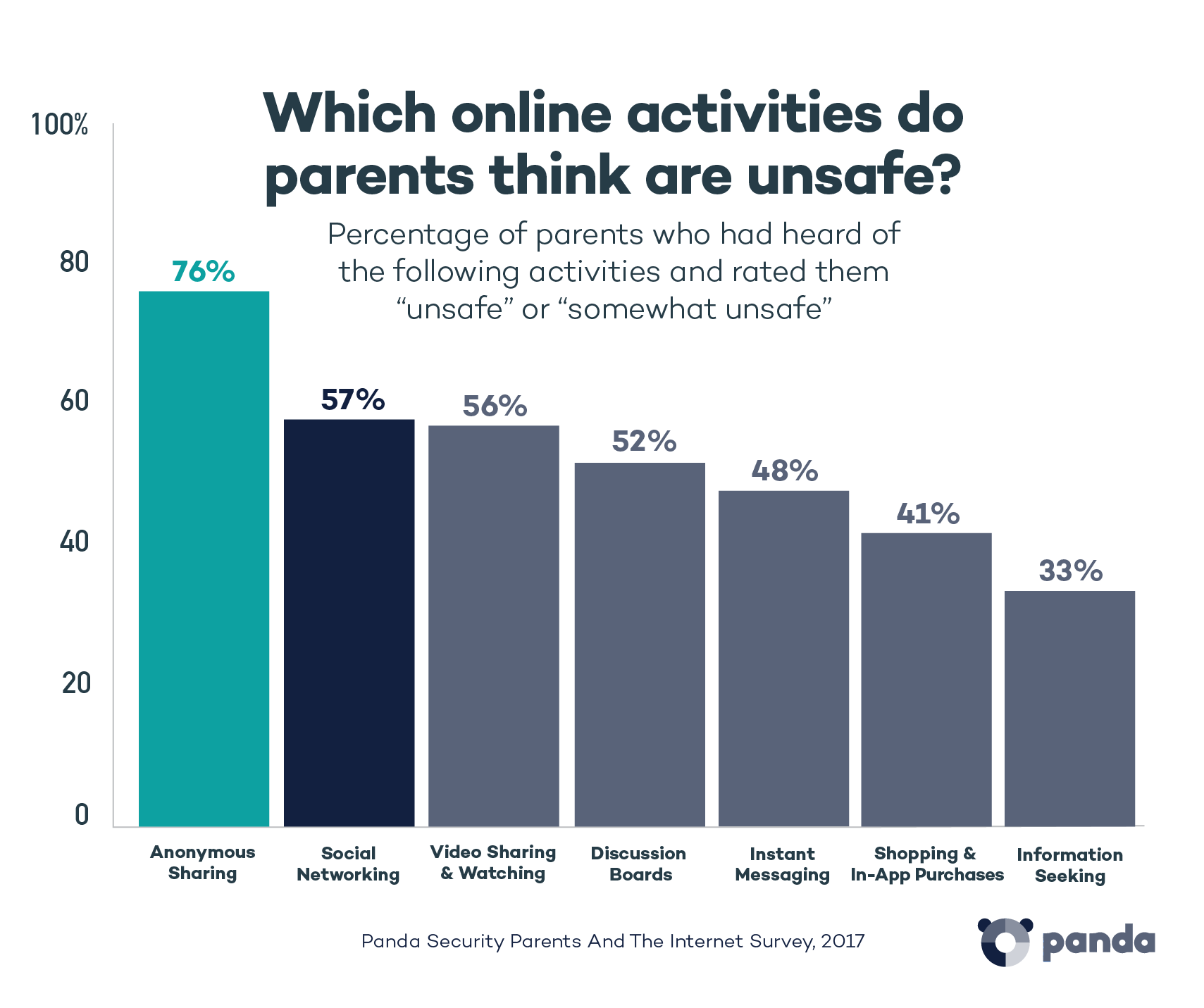
Of the seven online activities we listed, “anonymous sharing” was the online activity most concerning to parents. 75.9 percent reported feeling “somewhat unsafe” or “very unsafe” when it came to their kids and anonymous sharing.
The data suggests app developers need to include better parental controls for monitoring or stopping anonymous sharing activities of children.
Anonymity could factor into the perceived safety of social media sites. While there’s a good amount of safety concern among parents for a social website like Facebook (47 percent), it’s even more for 4chan (58.4 percent)—a site where anonymity is more prevalent.
Social networking was the second most unsafe online activity with 57.2 percent followed by “video sharing/watching” at 56.6 percent. A larger percentage of parents reported feeling concerned about video sharing than reported being concerned about the video sharing website YouTube.
Parents Are Worried About How Their Kids Get News
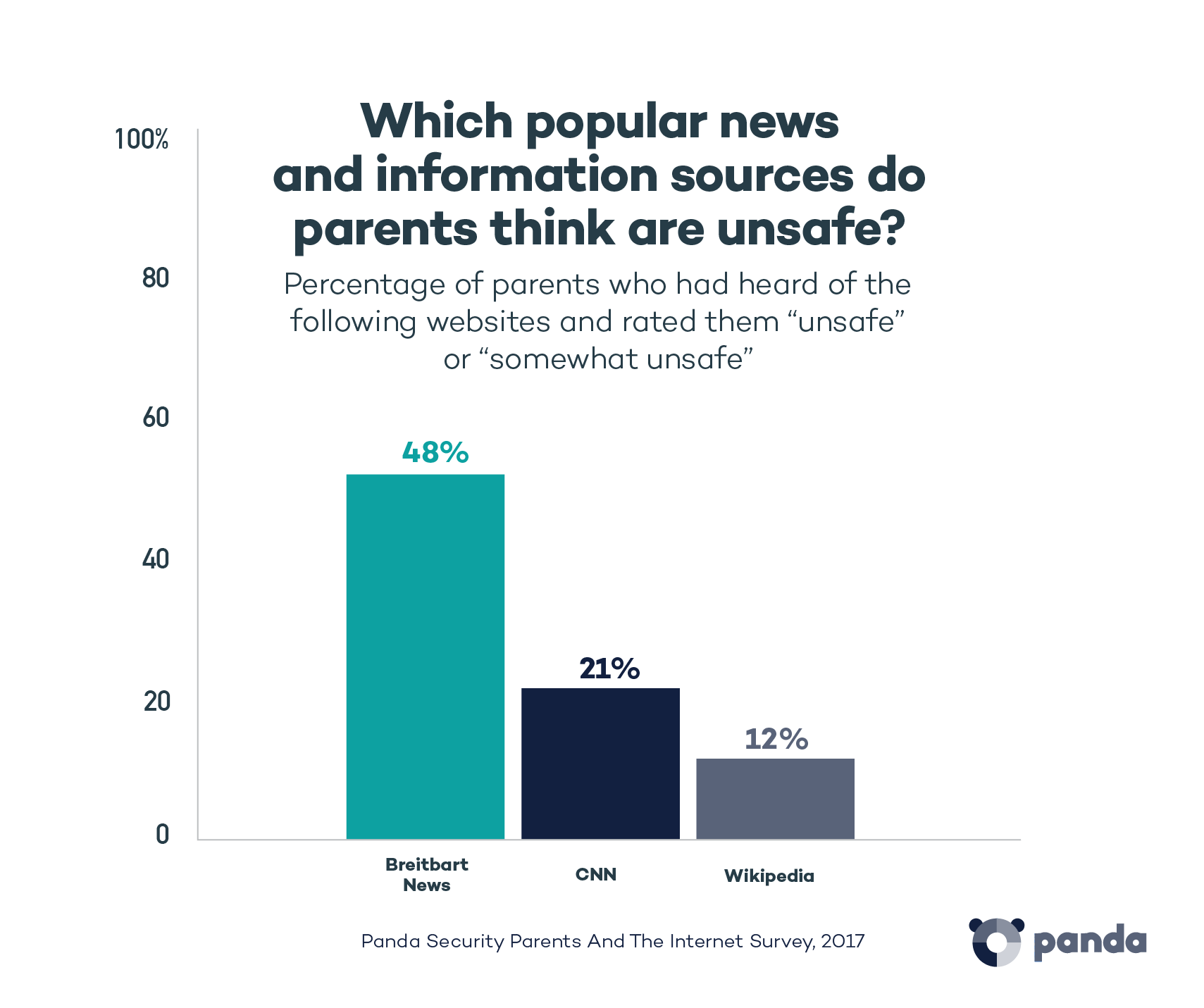
Our analysis shows 47.9 percent of the total pool of respondents who had heard of the right-wing website Breitbart rated it “somewhat unsafe” or “very unsafe”. That’s compared to 20.5 percent that responded the same to the more centrist Cable News Network. 8.1 percent said they considered both websites a safety concern when it came to their children.
Wikipedia also ranked as somewhat or very unsafe to 12.2 percent of parents. “Fake news” controversies and growing concerns about biased information are threatening the legitimacy of some online information sources like Wikipedia.
Parents Are Very Concerned About Sexual Predators
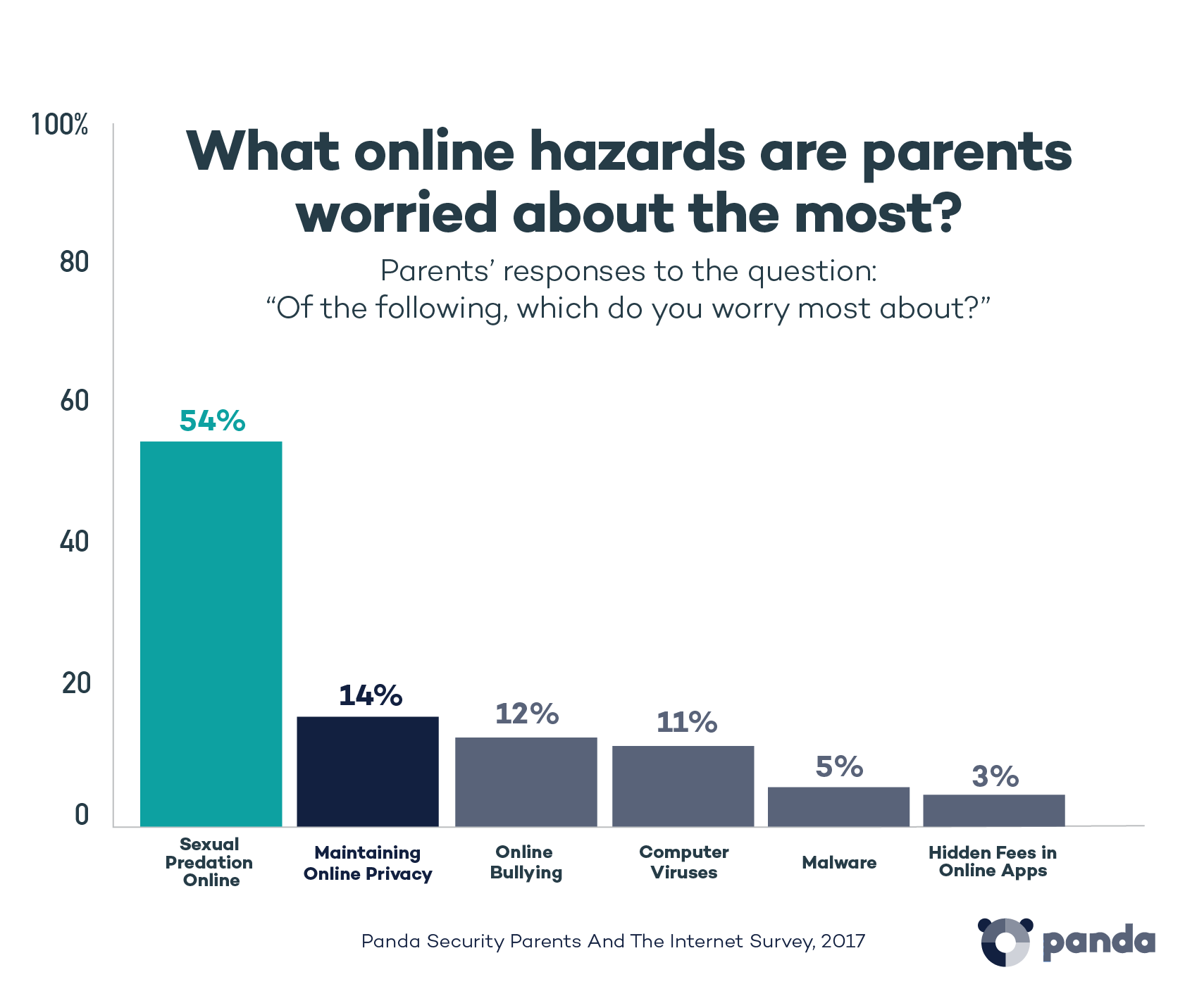
Of the six options presented, 52.4 percent of parents chose “sexual predation online” as their top online concern for their children. 14.3 percent chose “Maintaining online privacy” followed by “online bullying” at 11.8 percent.
More Than a Third of Parents Don’t Talk To Their Kids About Online Sexual Predation
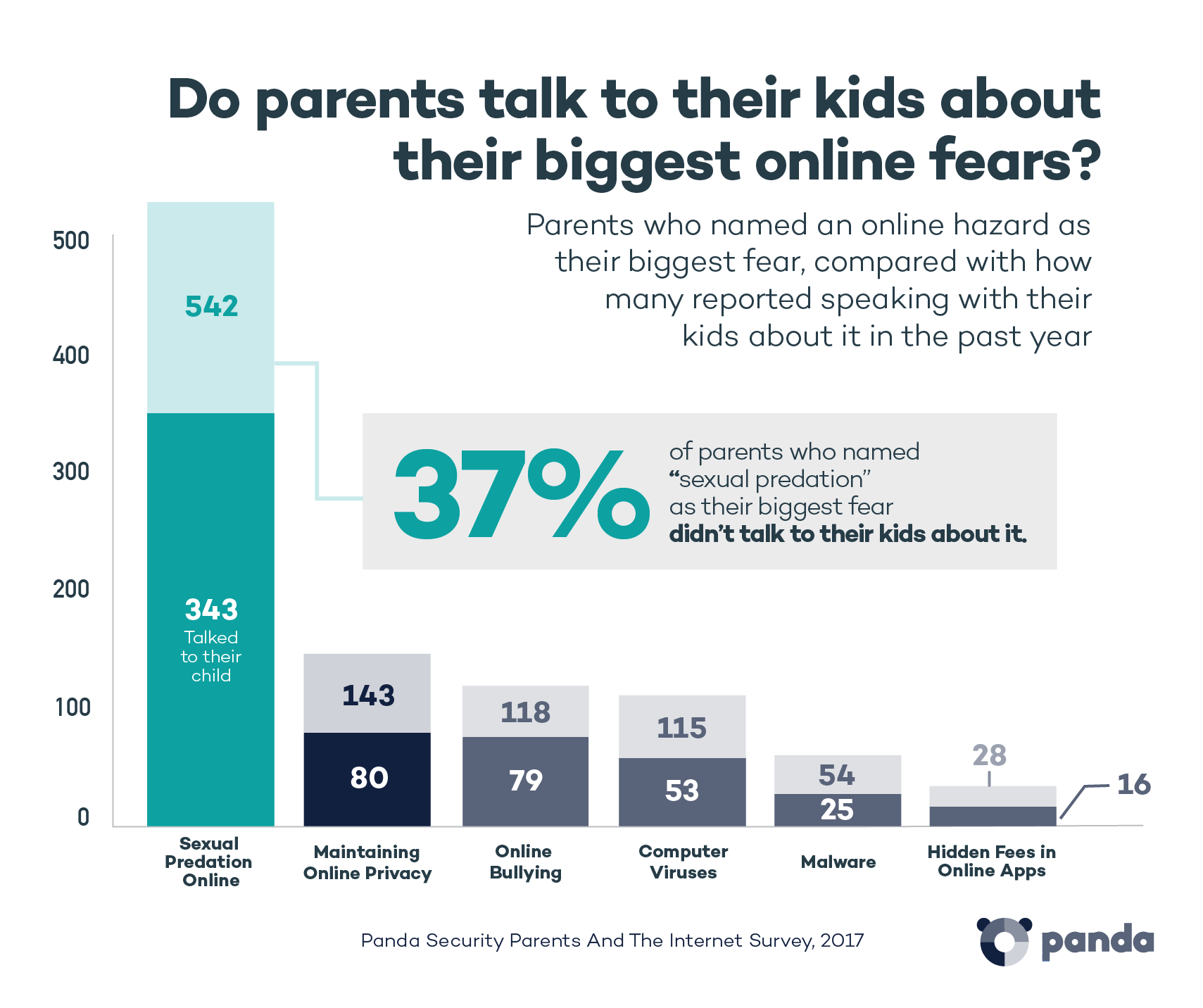
While 52 percent of parents reported sexual predation as their primary concern, 37 percent of those said they hadn’t spoken to their children about the topic in the past year. Among parents who reported online bullying as their primary concern, a similar percentage hadn’t spoken to their children about the topic, at 33 percent.
For less emotionally and physically dangerous concerns like “Computer Viruses” and “Hidden Fees in Online Apps”, the percentage of all parents who expressed concern, but hadn’t spoken with their children, was even higher (54 percent and 43 percent, respectively).
Among parents most concerned about maintaining online privacy, 44 percent of parents overall hadn’t discussed the topic. The numbers suggest the threat of online privacy and identity theft is being perceived as a similar to hidden app fees.
Cyberbullying Is Being Underrated By Parents As A Concern
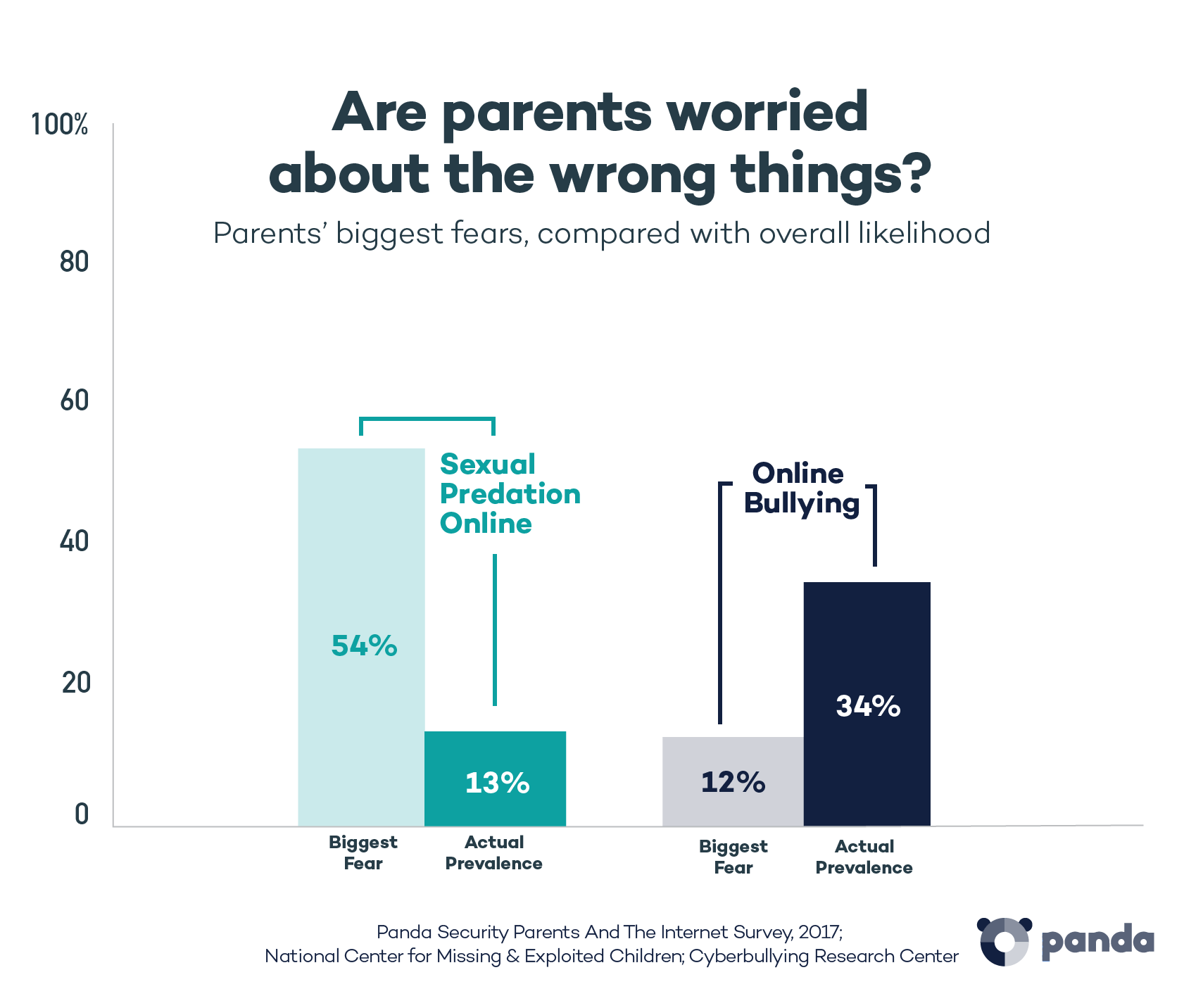
Our analysis shows parents biggest fears aren’t reflective of actual prevalence rates. Of the total group, 54.2 percent of parents said sexual predation online was their biggest concern while 11.8 percent said the same for online bullying. Sexual predation is defined as any person using the internet for the express purpose of targeting a minor to perform non-consensual sex acts.
Compared to sexual predation, cyberbullying occurs much more frequently for children. The prevalence rate for sexual predation online is only 13.0 percent. In contrast, a 2016 study commissioned by the Cyberbullying Research Center found 33.8 percent of U.S. high school students between the ages of 12 and 17 said they had experienced cyberbullying. Examples of cyberbullying can include sending threatening or hurtful texts, posting embarrassing photos or video, and/or spreading rumors.

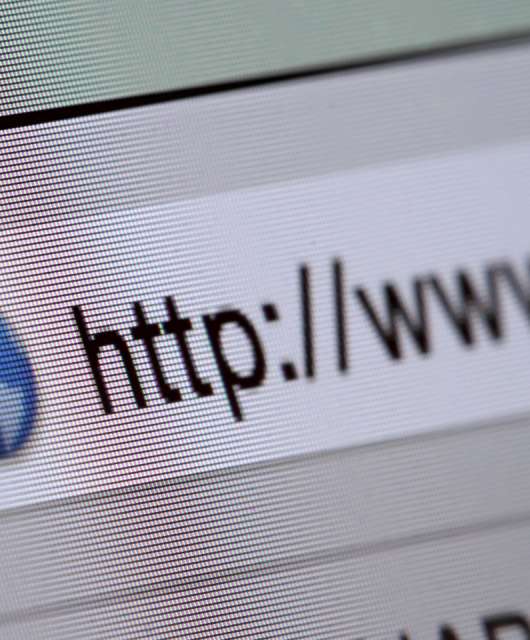




5 comments